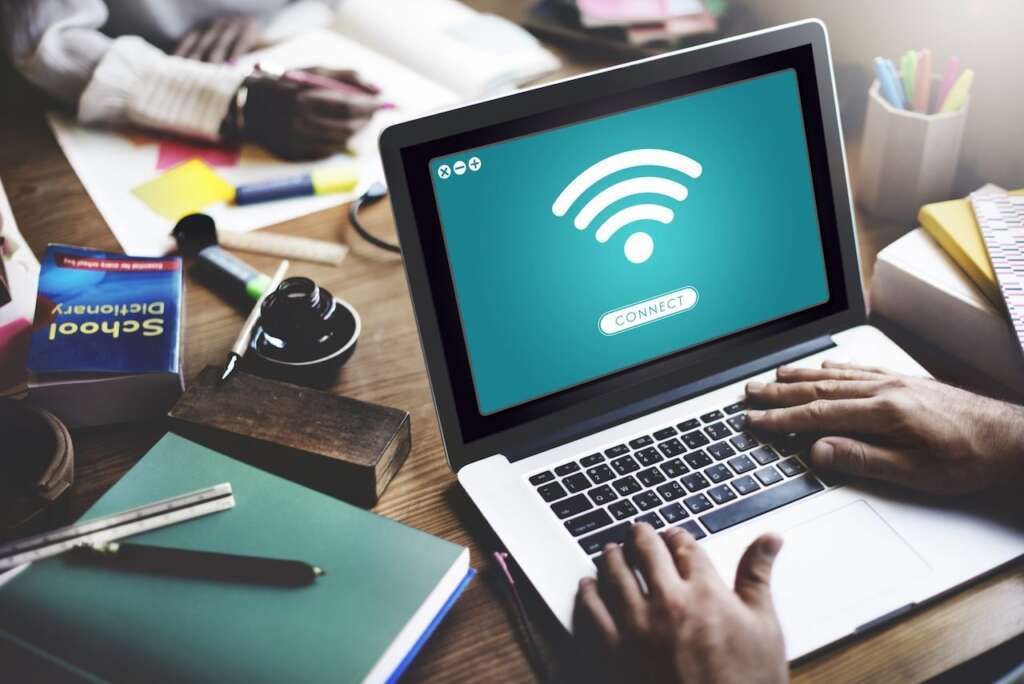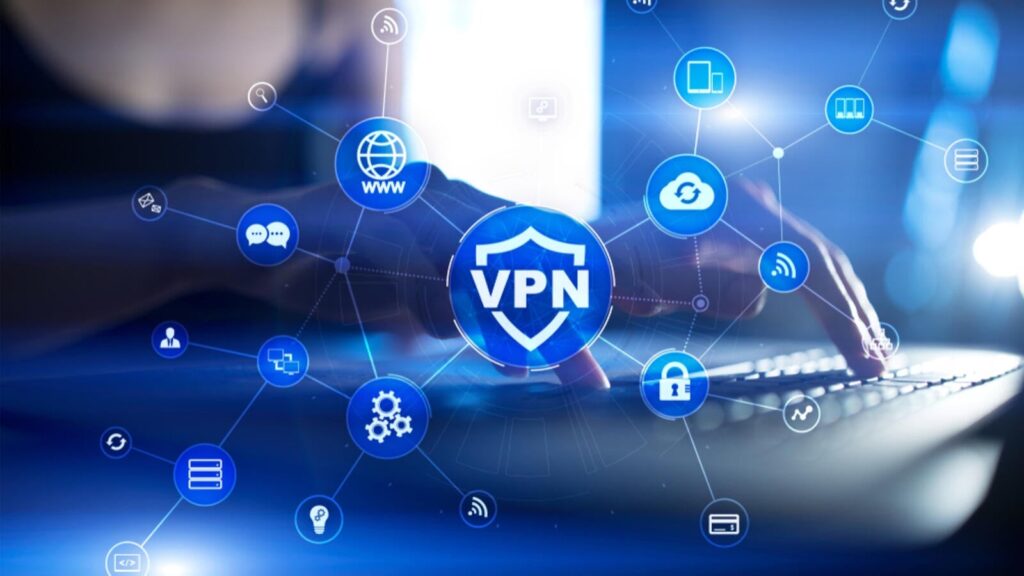
In today's digital age, torrenting has become a prevalent means of file sharing. However, for students relying on college WiFi, this practice comes with unique challenges. From potential legal consequences to network restrictions, the risks are real.
In this blog, we unravel the intricacies of torrenting on college campuses, shedding light on its dangers and how to navigate them safely. Understanding and addressing this issue is paramount for students who seek to access content efficiently and legally.
Join us as we delve into the world of college WiFi torrenting, empowering you to make informed decisions and stay connected responsibly.
Understanding Torrenting
Torrenting is a P2P file-sharing method where users download files from multiple sources simultaneously. It operates on a decentralized network, making each downloader a distributor. A “torrent file” with metadata and trackers initiates the process.
Trackers connect users sharing the same file. As users download, they become distributors, speeding up large file downloads. Benefits include faster downloads and access to rare content. However, torrenting entails legal risks due to copyright infringement and potential malware.
Colleges may prohibit torrenting on their networks. To torrent safely, users should use reputable websites, verify file integrity, and understand local laws and college policies. Utilizing a VPN is a need for torrenting it adds an extra layer of security and anonymity.
The Challenges of Torrenting on College WiFi

Torrenting on college WiFi poses several challenges for students. Firstly, many colleges block access to popular torrenting websites, limiting students' ability to download files. Secondly, bandwidth restrictions may slow down torrent downloads, making the process time-consuming and frustrating.
Additionally, privacy concerns arise as college networks are often monitored, potentially leading to disciplinary actions for copyright violations. To overcome these obstacles, students may use virtual private networks (VPNs) to bypass restrictions and maintain anonymity while torrenting.
However, it is crucial for students to adhere to college policies and legal regulations to avoid any adverse consequences while enjoying the benefits of torrenting.
The Legal and Ethical Considerations
The Legal and Ethical Considerations of torrenting are significant. Torrenting copyrighted material without proper authorization is illegal in many countries and can lead to severe legal consequences, including fines and potential lawsuits.
Sharing copyrighted content without permission infringes on the rights of content creators and distributors, impacting their livelihoods. From an ethical standpoint, torrenting raises questions about respecting intellectual property and supporting content creators.
While some argue that torrenting allows access to content without cost, it can also undermine the creative industry's sustainability and discourage the production of new and innovative works. Ethical torrenting involves respecting copyright laws and supporting content creators by seeking legal alternatives for accessing content.
The Role of VPNs in Torrenting
VPNs play a crucial role in torrenting, especially on college WiFi. By encrypting internet traffic and masking IP addresses, a VPN provides anonymity and helps bypass restrictions imposed by colleges to prevent torrenting. This enables students to safely access torrent sites and share files without getting caught or facing disciplinary actions.
Without a VPN, torrenting exposes users to significant risks. Colleges may detect torrenting activities and apply strict penalties, including network restrictions or legal consequences for copyright infringement.
Additionally, torrenting without a VPN leaves users vulnerable to potential privacy breaches, as their IP addresses are visible to other users on the decentralized network, increasing the likelihood of being targeted by malicious entities.
Choosing the Right VPN for Torrenting on College WiFi

Choosing the right VPN for torrenting on college WiFi requires careful consideration of several factors. Firstly, look for a VPN with a strict no-logs policy like ExpressVPN to ensure your online activities are not recorded or monitored.
Secondly, check the server locations; having servers in torrent-friendly countries enhances your experience. High-speed connections are crucial for faster downloads, so prioritize VPNs with reliable and fast servers.
Additionally, opt for VPNs with strong encryption protocols to protect your data during torrenting. Lastly, consider the VPN's compatibility with various devices and operating systems for seamless integration into your workflow.
A well-chosen VPN will provide the necessary security and privacy while ensuring a smooth torrenting experience on college networks.
As highly recommended, check the best VPNs for torrenting on college WiFi – a secure and high-speed solution to ensure seamless file sharing while safeguarding your privacy and bypassing restrictions.
ExpressVPN is a top recommendation for torrenting on College WiFi. With a risk-free 30-day free trial, students can experience its torrent-friendly features, including a strict no-logs policy and P2P support. Enjoy lightning-fast speeds and secure, anonymous file sharing, making ExpressVPN an ideal choice for hassle-free and safe torrenting.
Step-by-Step Guide on How to Torrent on College WiFi Using a VPN
Discover the ultimate guide on how to torrent on college WiFi using a VPN, ensuring secure and anonymous file sharing on campus networks.
- Choose a Reliable VPN: Select a reputable VPN service with P2P support, strong security features, and fast servers to ensure a smooth torrenting experience.
- Install the VPN Software: Download and install the VPN software on your device, following the instructions provided by the VPN provider.
- Sign Up and Activate: Create an account and activate the VPN with your login credentials.
- Connect to a Server: Launch the VPN app and connect to a server in a torrent-friendly location. This enhances download speeds and ensures your activities are protected.
- Enable Kill Switch: Turn on the VPN's kill switch feature to automatically disconnect your internet if the VPN connection drops, preventing your real IP address from being exposed.
- Open Your Torrent Client: Launch your preferred torrent client and start searching for the files you want to download.
- Download Torrent File: Once you find the desired file, click on the magnet link or download the torrent file to your device.
- Start Torrenting: The torrent client will automatically connect to other users sharing the file. Your VPN will encrypt your traffic, providing anonymity and security.
- Monitor the VPN Connection: Keep an eye on your VPN connection to ensure it remains active during the entire torrenting process.
- Seed Responsibly: After completing your download, consider continuing to seed (share) the file to contribute to the torrenting community.
By following this step-by-step guide, you can torrent on college WiFi safely and successfully, enjoying fast download speeds and the protection of a reliable VPN. Remember to adhere to your college's policies and the local laws regarding file sharing to ensure a responsible and legal torrenting experience.
Best Practices for Safe and Responsible Torrenting
Explore the essential Best Practices for Safe and Responsible Torrenting, ensuring a secure and legal file-sharing experience on college WiFi.
- Use a VPN: Always use a reputable VPN to encrypt your internet traffic and ensure anonymity, protecting you from potential legal consequences and college scrutiny.
- Choose Trusted Torrent Sites: Stick to reputable torrent websites to avoid downloading malicious files and respect copyright laws.
- Verify File Integrity: Before downloading, check user reviews and comments to ensure the file is legitimate and not infected with malware.
- Limit Bandwidth Usage: Be considerate of others on the college network by limiting your torrenting bandwidth during peak hours.
- Seed Responsibly: Contribute to the torrenting community by continuing to seed files you've downloaded, promoting fairness and efficient sharing.
- Follow College Policies: Respect your college's policies on torrenting to avoid disciplinary actions and network restrictions.
- Use Antivirus Software: Protect your device from potential threats by keeping your antivirus software up-to-date.
- Keep Software Updated: Maintain your torrent client and VPN software updated to benefit from the latest security features.
- Understand Copyright Laws: Familiarize yourself with local copyright laws to avoid unintentional violations.
By following these best practices, you can safely and responsibly torrent on college WiFi, protecting yourself, respecting copyright laws, and promoting a positive torrenting experience for all users on the network.
Conclusion
In conclusion, safe and responsible torrenting on college WiFi is paramount for students. Adhering to copyright laws and college policies not only protects them from legal consequences and network restrictions but also supports content creators.
Utilizing reputable VPNs, checking file integrity, and seeding responsibly fosters a positive torrenting community. By understanding the risks and implementing necessary precautions, students can enjoy seamless and secure file sharing while respecting the rights of others.
Let's embrace responsible torrenting and ensure a responsible and legal online experience for everyone.
FAQ’s
Is torrenting on college WiFi legal?
Torrenting itself is not illegal, but downloading copyrighted material without permission violates copyright laws. Colleges often prohibit torrenting due to copyright infringement risks.
Can I get caught torrenting on college WiFi?
Yes, colleges monitor their networks and can detect illegal activities like torrenting. This may lead to disciplinary actions or legal consequences.
How can I torrent on college WiFi safely?
Use a reputable VPN to encrypt your traffic and mask your IP address for anonymity. Verify file integrity, avoid suspicious sites, and respect college policies.
What are the risks of torrenting without a VPN?
Torrenting without a VPN exposes your IP address to others, increasing the chance of detection and potential legal issues for copyright infringement.
How does a VPN help with torrenting?
A VPN encrypts your internet traffic, making it challenging for colleges and ISPs to detect torrenting activities. It also masks your IP address, ensuring anonymity while torrenting.

Thomas Smith is the editor of forprivacy.org, overseeing a team focused on building the voice of the cybersecurity world through guides, reviews articles and community. His background is as a writer and seasoned software industry veteran with 10 years of experience.
More Posts




